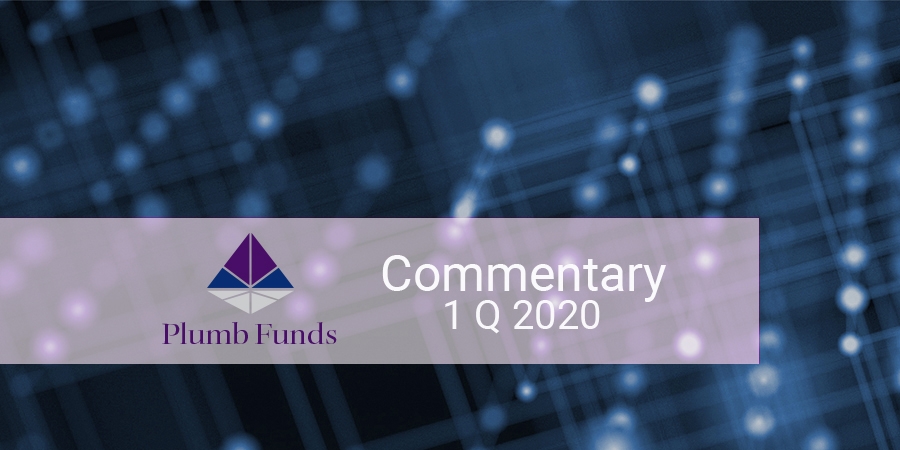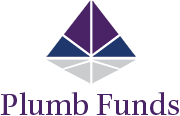
The March 31st quarter included unprecedented worldwide economic, health and investor turmoil. The Dow Jones Industrial Average suffered its worst start of a year in its 124-year history. This decline completely offset the strong stock market returns of the previous year, putting the S&P 500 back to the levels of December 2018. The pandemic put all the worlds’ national economies, macro and micro alike, on the same downward spiral.
Investors ask when and if this bear market will recover. No one knows the bottom of the stock market until six to nine months after the fact. Only when all eyes are looking forward can we conclusively say that the market bottomed on such-and-such day six months ago and what the catalyst for the recovery was. Markets tend not to bottom until facts, no matter if they are bad or not so bad, replace speculation.
Having said that, the market is in a bottoming process given the world that we currently know. We are vulnerable to shocks from here, but generally we should see selective recovery of individual stocks until the whole environment improves. When the news cycle starts to include other topics besides the pandemic, we will probably be in the midst of a market and economic recovery.
So, when we do see a recovery, what should we expect?
Past recessions and bear markets typically resulted from some aspect of economic excesses that exceeded any reasonable economics. What I mean here is the tech bubble (1999), mortgage financial bubble (2007) and inflation and interest rate bubble (1980), all caused capital to rush into these market segments to the extent that we saw Ponzi schemes that required new capital to justify the valuations of these investments. These climaxes were then followed by bear markets and by a change in stock leadership for the recovery and ensuing cycle.
This time is different. What aspect of this recession and bear market will interrupt and alter the secular trends fed by the digital transformation? Will people return to the malls at the expense of Amazon? Will they revert to cash as opposed to electronic payments systems? Will companies and individuals stop using the cloud? Will pharmaceutical companies, engineers and architects turn away from artificial intelligence and virtualization?
Many analysts suggest that the next cycle will be led by emerging markets, international stocks in general, value stocks or small caps. We believe they will be wrong. The successful companies and business models last year will be the successful companies and business models coming out of this crisis.
Amazon and VISA will grow at 2-3 times Gross National Product (GNP) no matter what the growth rate of the economy. Cloud computing will grow even faster, benefitting Amazon, Microsoft and to a lesser extent, Google. Nvidia will be the great enabler. Software as a service, with low capital needs, subscription models will continue to be successful business plans.
For most of us there is no real advantage in trying to bet that we can pick the bottom. Selectively we are adding to some of the names above anticipating the prices we expect to see a year from now. But a green light telling us we are through the worst hasn’t appeared yet.
We hope you; your family, friends and colleagues stay safe through all of this.
Thomas G. Plumb
Important Information
SPXT-S&P 500 Total Return Index. S&P 500 is an unmanaged index which is widely regarded as the standard for measuring large-cap U.S. stock market performance. Calculated intraday by S&P based on the price changes and reinvested dividends of SPX with a starting date of Jan 4, 1988.
It is not possible to invest directly in an index.
The Fund’s investment objectives, risks, charges and expenses must be considered carefully before investing. The prospectus contains this and other important information about the investment company, and it may be obtained on www.plumbfunds.com or by calling 1-866-987-7888. Read it carefully before investing. The Fund’s investment objectives, risks, charges and expenses must be considered carefully before investing. The prospectus contains this and other important information about the investment company, and it may be obtained on www.plumbfunds.com or by calling 1-866-987-7888. Read it carefully before investing.
Past performance does not guarantee future results.
Opinions expressed are those of the author as of July 31, 2018 and are subject to change, are not intended to be a forecast of future events, a guarantee of future results, nor investment advice.
Earnings growth is the annual rate of growth of earnings from investments.
Mutual fund investing involves risk. Principal loss is possible.
The fund may invest in small and mid-sized companies which involve additional risks such as limited liquidity and greater volatility. The funds invest in foreign securities which involve greater volatility and political, economic and currency risks and differences in accounting methods. Because the funds may invest in ETFs, they are subject to additional risks that do not apply to conventional mutual funds, including the risks that the market price of an ETF’s shares may trade at a discount to its net asset value (“NAV”), an active secondary trading market may not develop or be maintained, or trading may be halted by the exchange in which they trade, which may impact a fund’s ability to sell its shares. The fund may also use options and future contracts, which have the risks of unlimited losses of the underlying holdings due to unanticipated market movements and failure to correctly predict the direction of securities prices, interest rates and currency exchange rates. The investment in options is not suitable for all investors. The Plumb Balanced Fund will invest in debt securities, which typically decrease in value when interest rates rise. This risk is usually greater for longer-term debt securities.
Fund holdings are subject to change at any time and should not be considered a recommendation to buy or sell any security.
Diversification does not assure a profit nor protect against loss in a declining market.
Plumb Funds are distributed by Quasar Distributors, LLC, distributor.
The Dow Jones Industrial Average (DJIA) is an index that tracks 30 large, publicly owned blue-chip companies trading on the New York Stick Exchange (NYSE) and the NASDAQ.
Plumb Balanced Fund as of 3/31/2020 holdings for Amazon Com Inc 3.15%, Visa Inc 3.53%, Microsoft Corp 3.79%, Nvidia Corp 2.48%, and Alphabet Inc. (C Class) 0.49% (A Class) 2.30%.
Plumb Equity Funds as of 3/31/2020 holdings for Amazon Com Inc 4.49%, Visa Inc 6.33%, Microsoft Corp 6.22%, Nvidia Corp 3.73% and Alphabet Inc. 4.59%.
